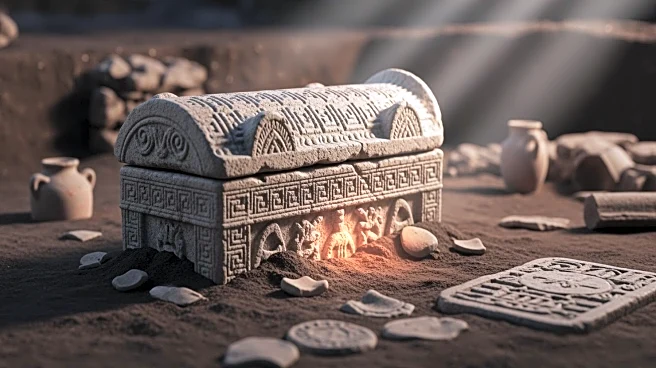What's Happening?
A Roman sarcophagus dating back 1,700 years has been discovered in Budapest, Hungary, revealing treasures buried with a woman of higher social status. The sarcophagus was found intact, sealed with metal
clamps and molten lead, containing a complete skeleton surrounded by artifacts such as glass vessels, bronze figures, and coins. The discovery offers insights into Roman funerary customs and the social status of the deceased, with anthropologists examining the remains to learn more about her age, health, and origins.
Why It's Important?
The discovery of the Roman sarcophagus provides valuable insights into ancient Roman culture and burial practices. It highlights the significance of archaeological research in understanding historical societies and their customs. The intact nature of the sarcophagus offers a rare opportunity to study Roman artifacts and social hierarchies, contributing to the broader field of archaeology and history. This finding may influence future archaeological methods and inspire further exploration of ancient sites.








